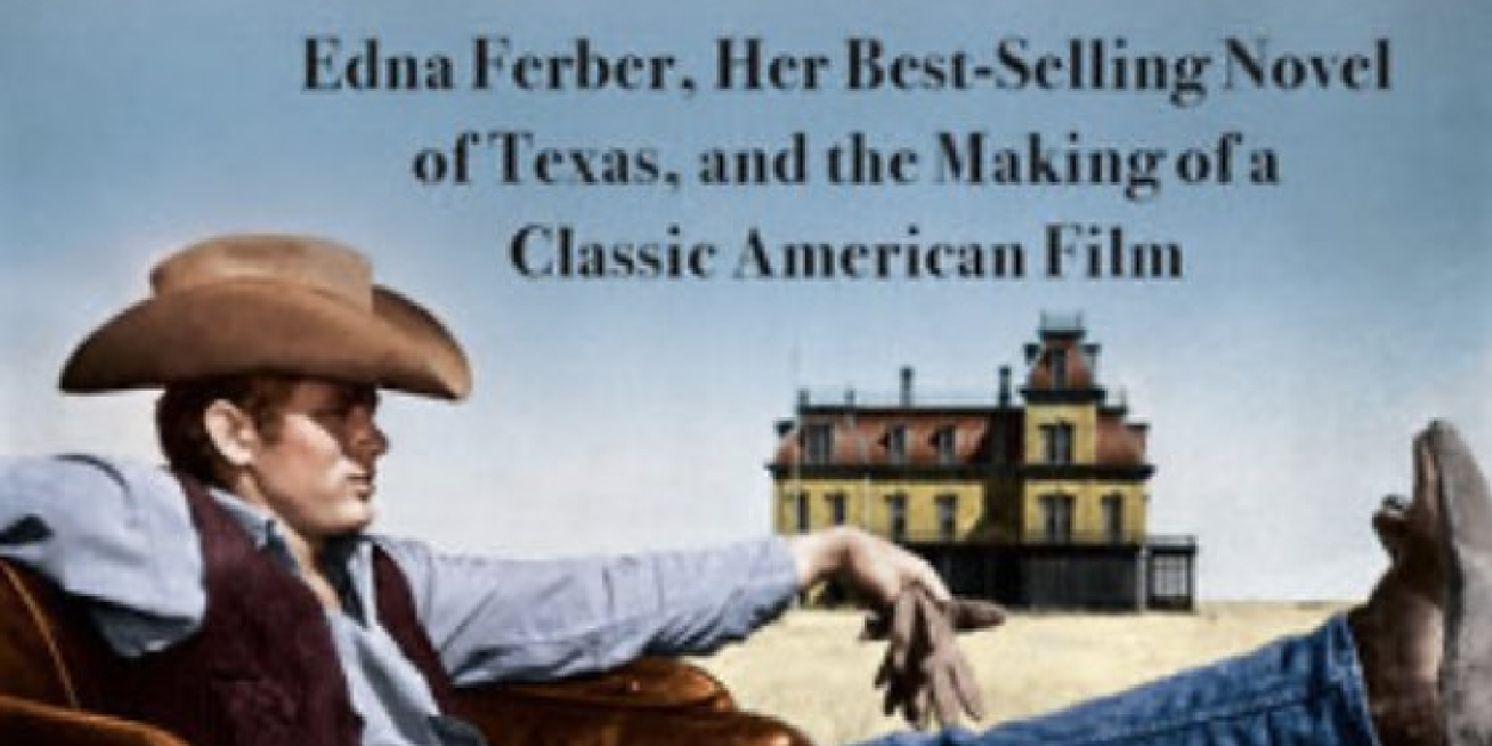Discover the Story of Edna Ferber's Novel in New Book GIANT LOVE
Available December 3 from Pantheon Books.

GIANT LOVE, the compelling story of the writing of Edna Ferber's acclaimed novel, "Giant," and the making of the classic Oscar-winning blockbuster film, starring Elizabeth Taylor, Rock Hudson and James Dean, will be published on December 3 by Pantheon Books, a division of Penguin/Random House.
In GIANT LOVE, author/playwright Julie Gilbert, Ferber's great-niece, explores Ferber's writing of the controversial international bestseller, "Giant." The novel set off a storm of protest over its portrayal of Texas manners, money and mores with oil-rich Texans threatening to shoot, lynch or ban Ferber from ever entering the state again upon its publication in 1952.
GIANT LOVE also chronicles the making of the 1956 film of the same name, starring Elizabeth Taylor, Rock Hudson and, in his third and final film role, James Dean. Hailed today as "...the definitive 20th-century Texas movie" by USA Today and "a classic for the themes it represents, both on screen and off" by Associated Press, "Giant" continues to enthrall audiences. Director George Stevens captured the Best Director Oscar for the film, which garnered nine other nominations that year.
GIANT LOVE chronicles Ferber's evolution from mid-west maverick girl-reporter to Pulitzer Prize winning American novelist, from her want-to-be actress days to becoming Broadway's acclaimed prize-winning playwright whose collaborators - George S. Kauffman and Moss Hart, among them, were, along with Ferber, herself, the most successful playwrights of their time. The new book has been called "...(a) riveting narrative... a multi-dimensional portrait of a writer's creative process, accompanied by a vibrant history of the making of the film 'Giant'" by film historian Foster Hirsch and "one of those rare books you can't put down and don't ever want to end" by Andre Bishop, producing artistic director of the Lincoln Center Theater.
One of the most widely read writers in the first half of the 20th Century, Edna Ferber's prodigious canon is comprised of twelve novels (one a Pulitzer Prize for Fiction winner)-ten of which were adapted into films (some of them more than once)-eight plays, several produced on Broadway, eleven collections of short stories and not one, but two memoirs. She socialized with members of the famous Algonquin Round Table, including President Teddy Roosevelt, and had friendships with luminaries such as Katharine Hepburn, Richard Rodgers and Oscar Hammerstein.
Julie Gilbert, whose previous book, "Opposite Attraction: The Lives of Erich Maria Remarque and Paulette Goddard," was Pulitzer nominated, had unique access to Ferber's treasure trove of personal letters, interviews and journals. In "Giant," Ferber used copious first-hand research via five protracted trips to Texas to depict the horrific treatment of cheap Mexican labor and the prejudice against Mexican immigrants, inciting the wrath of Texans while going on to sell millions of copies. Gilbert also captures the making of the film, with stories about the writing of the screenplay, the location search and the casting.
Ferber made American stories her milieu, calling her work "novels of protest." She created tales of everyday life on a truck farm in Illinois (So Big), the bleakness of pre-statehood Alaska (Ice Palace), the development of Oklahoma after the Land Rush that usurped the natives of the area (Cimarron) and, of course, the oil fields of West Texas depicted in her sweeping novel "Giant." Her meticulously researched work reflected a profound contempt for racism, discrimination and intolerance of any kind.
GIANT LOVE chronicles Ferber's evolution from mid-west maverick girl-reporter to Pulitzer Prize winning American novelist, from her want-to-be actress days to becoming Broadway's acclaimed prize-winning playwright whose collaborators - George S. Kauffman and Moss Hart, among them, were, along with Ferber, herself, the most successful playwrights of their time. The new book has been called "...(a) riveting narrative... a multi-dimensional portrait of a writer's creative process, accompanied by a vibrant history of the making of the film 'Giant'" by film historian Foster Hirsch and "one of those rare books you can't put down and don't ever want to end" by Andre Bishop, producing artistic director of the Lincoln Center Theater.
One of the most widely read writers in the first half of the 20th Century, Edna Ferber's prodigious canon is comprised of twelve novels (one a Pulitzer Prize for Fiction winner)-ten of which were adapted into films (some of them more than once)-eight plays, several produced on Broadway, eleven collections of short stories and not one, but two memoirs. She socialized with members of the famous Algonquin Round Table, including President Teddy Roosevelt, and had friendships with luminaries such as Katharine Hepburn, Richard Rodgers and Oscar Hammerstein.
Julie Gilbert, whose previous book, "Opposite Attraction: The Lives of Erich Maria Remarque and Paulette Goddard," was Pulitzer nominated, had unique access to Ferber's treasure trove of personal letters, interviews and journals. In "Giant," Ferber used copious first-hand research via five protracted trips to Texas to depict the horrific treatment of cheap Mexican labor and the prejudice against Mexican immigrants, inciting the wrath of Texans while going on to sell millions of copies. Gilbert also captures the making of the film, with stories about the writing of the screenplay, the location search and the casting.
Ferber made American stories her milieu, calling her work "novels of protest." She created tales of everyday life on a truck farm in Illinois (So Big), the bleakness of pre-statehood Alaska (Ice Palace), the development of Oklahoma after the Land Rush that usurped the natives of the area (Cimarron) and, of course, the oil fields of West Texas depicted in her sweeping novel "Giant." Her meticulously researched work reflected a profound contempt for racism, discrimination and intolerance of any kind.
For more information on GIANT LOVE, visit:
https://www.penguinrandomhouse.com/books/607862/giant-love-by-julie-gilbert/
Videos

